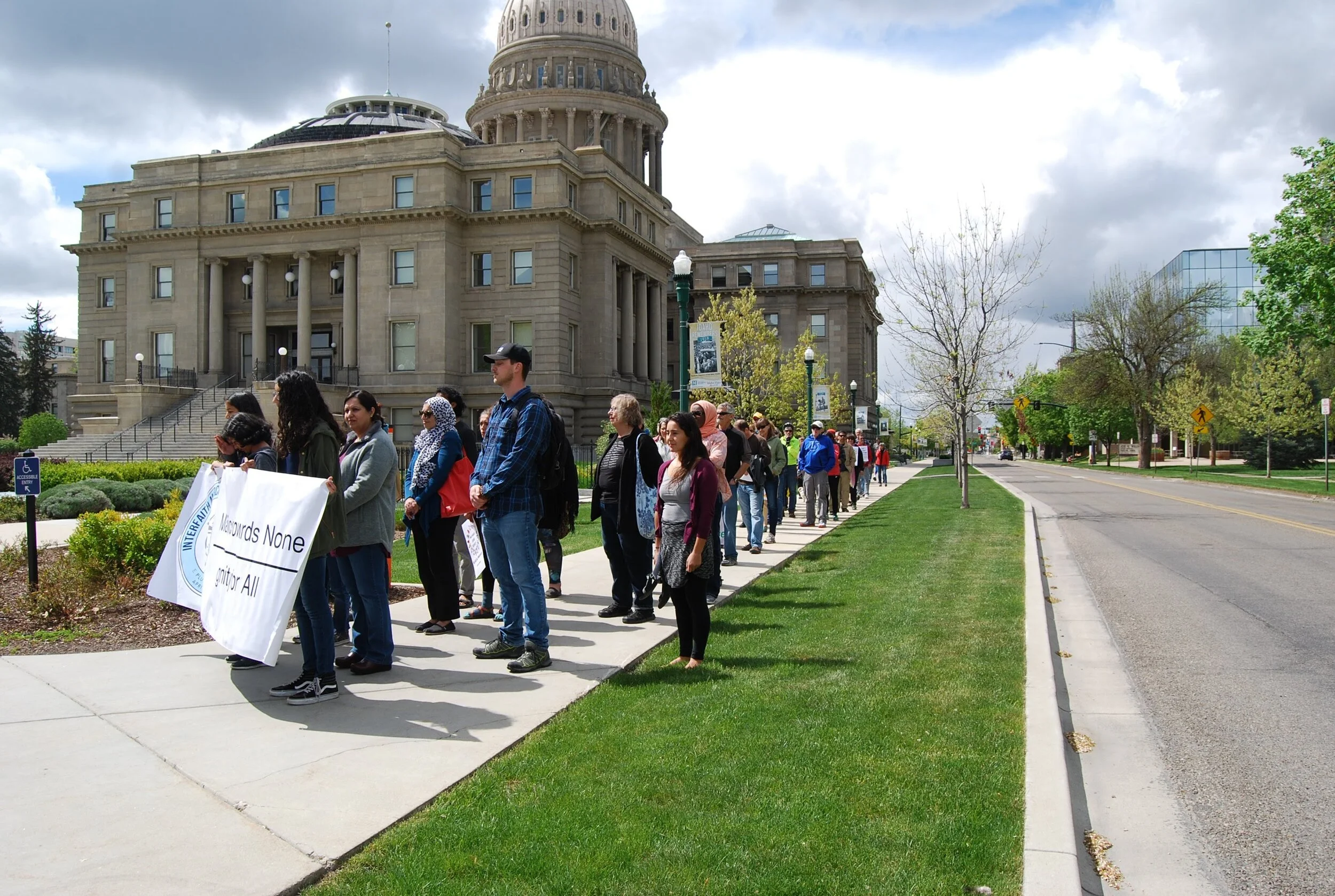Bearing the Burden of Hate - What Can You Do?
by Rebecca Brown
The fear most Muslims experience after a tragedy like the shooting in Orlando is hard to grasp.
Just five days after Omar Mateen’s deadly attack, I sat in a room of tired, hungry (it was the end of a day of fasting), passionate Muslim women. We were gathered to plan a storytelling event—one event of many in an ongoing project in our beloved city of Columbus, Ohio.
Before digging into logistical details of our event, we talked about what Mateen’s actions meant for them in their everyday life. Since he was a self-proclaimed Muslim pledging allegiance to the self-proclaimed Islamic State, the words “MUSLIM” and “ISLAM” rang out loud and clear in all commentary of the event.
When talking about the effects on them, an undercurrent of serious emotions ran with every story my friends shared. Teenage brothers get earlier curfews to curb random retaliation. Local shopkeepers of halal (Muslim) markets struggle against fear when closing down for the night. College students walking home from class watch their backs to see if anyone is following them.
After we commented that women wearing hijab (the headscarf) experience most of the social backlash for their religious community, one woman spoke up quietly. “My husband wears traditional clothes, so you can tell he’s a Muslim... I fear for him every time he leaves the house.”
The impact of the "fear all Muslims" rhetoric is real: the FBI reports that while Muslims are only about 1% of the U.S. population, they are on the receiving end of 13% of hate crimes. Creating a culture of widespread distrust and fear of an entire group is a technique that has been used preceding mass violence throughout history… for example, the Rwandan genocide.
According to a report from Georgetown University, since March of 2015 (the start of the Presidential primaries) anti-Muslim violence has included about 180 incidents: 12 murders, 34 physical assaults, 49 verbal assaults/threats, 56 acts of vandalism, 9 arsons, and 8 shootings or bombings, among other incidents.
I cried that evening at the gravity of it all: my treasured friends had to bear the burden of hate as a result of a violent stranger’s actions… and as a result of the way stories are being told about Muslims.
Innocuous as it may seem, storytelling has power—and the women at the meeting knew it. Fearmongering stories have the power to support mass discrimination, hate, and violence. But the real-life stories of my friends and those in their community also have the power to change the conversation for the good. And so we carried on late into the night, breaking the fast together and planning how we could shape the story of our own city.
As a follower of Jesus, what can you do in response to this injustice?
Choose love over fear.
Ask yourself, “Am I afraid? Why?”
Listen to the story of a Muslim in your own community.
Pray that the hearts of those who harbor hate will be changed.











